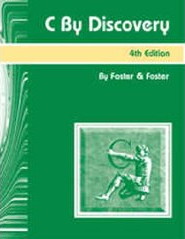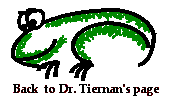 Final is Mon. Aug. 16th at 10:30am in class. Open book, open notes, no electronics.
Final is Mon. Aug. 16th at 10:30am in class. Open book, open notes, no electronics.
Lab #4 DESIGN DOCUMENT DUE
Wednesday, August 11
at 10:00am. If turning in as hardcopy, contact TA for instructions on how to submit.
Lab #3 DUE
Friday, August 6th
at 10:00am
See lab submission instructions below
 Lab #4 C++ Assignment for Summmer 2010 as
web page
and as
MS Word doc
Lab #4 C++ Assignment for Summmer 2010 as
web page
and as
MS Word doc
Submit Design Document and Lab to assigned TA (see info in the table below)
NO EXCEPTIONS
See lab for details about extra credit for EARLY submission.
Posted 5 August 2010;
Misc. Handy C++ stuff for this lab:
A) Dr. T continues to incorrectly say and write gpp for the compiler name - it is g++ .
B) In your file containing main make sure you #include the iostream file and that you have the line
using namespace std;
after the #includes to make C++ work well.
C) For purposes of Lab #4 you can continue to use C strings and string functions. Just make sure you include the correct library files for those functions.
D) To use an input file with C++ takes the following steps:
1) at the top use #include < fstream.h > or just fstream without .h
2) declare an input file stream object, connect it to a physical file, and open the file by a declaration like the following:
ifstream infile("lab4data.dat");
where ifstream is the input file stream class type, infile is the object, i.e. variable, name, and "lab4data.dat" is the name of a file that you want to use for the input file. Notice that this declaration does the equivalent of both declaring a FILE * variable and doing an fopen command in C. Now you should be able to use the infile object anywhere that you would use the cin object. You may choose your own object variable name. You should use the same input file as for Lab #3.
E) To check for the end of a file in C++ you test infile.eof(). This returns true if the file is at the end. Note that infile is the file stream object referred to in part D) above.
 Lab #3 Assignment for Summmer 2010 as
web page
and as
MS Word doc
Lab #3 Assignment for Summmer 2010 as
web page
and as
MS Word doc
Please report any errors or typos in assignment to Dr. T by e-mail ASAP.
Posted 26 July 2010;
Completed:
Pre-Lab Assignment for Summmer 2010
Lab #1 Assignment for Summmer 2010
Lab #2 Assignment for Summmer 2010

 If you have trouble reading something on this website or
If you have trouble reading something on this website or Reference material for Lab Assignments
Reference material for Lab Assignments


